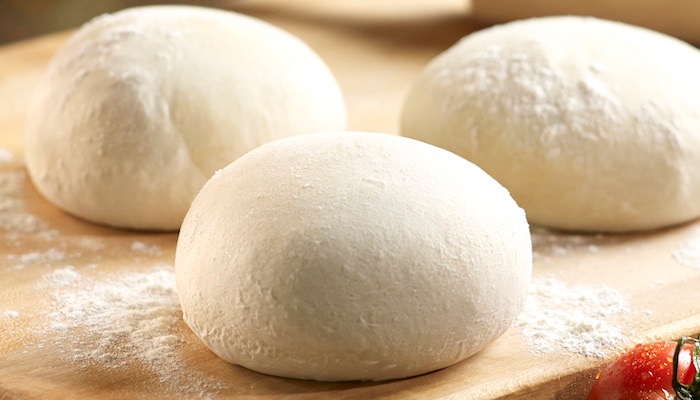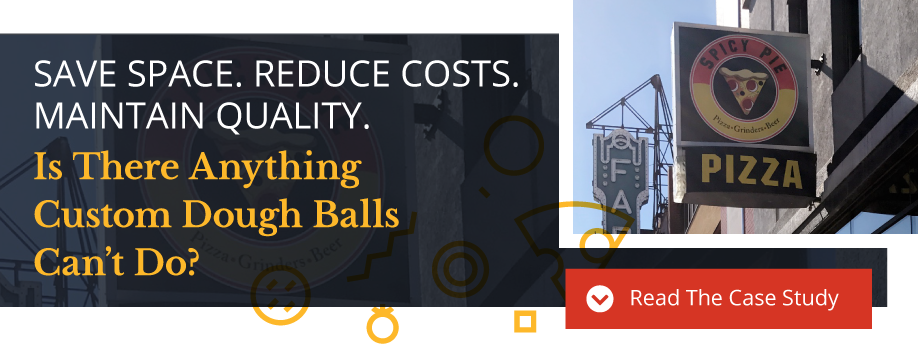 Growth is a top priority for multi-store pizzeria owners/operators, but have you considered how meeting that goal will change how you do business?
Growth is a top priority for multi-store pizzeria owners/operators, but have you considered how meeting that goal will change how you do business?
There are a lot of decisions to make when adding locations or expanding your business, including if making pizza dough from scratch is still time- and cost-efficient. Plus, as you add staff and locations, crust quality and consistency issues frequently occur when hand-mixing is left to a number of pizza makers in different kitchens. All are convincing arguments for using pre-made dough balls.
When to stop mixing your own dough may be easier to determine than how to transition to pre-made dough balls — after all, you’re essentially entrusting a third party with the crusts you’ve likely built your pies and reputation on for years. You’re going to have questions. Partnering with a quality pizza dough manufacturer is critical for your business (and your peace of mind). Follow these steps to find the right fit:
1. Identify your needs
Prior to switching to pre-made dough balls, develop a clear understanding of the characteristics and capabilities you need in your pizza dough. Knowing and being able to clearly convey your goals is the first step in finding a suitable manufacturer partner.
2. Do your research
Your current broadline or speciality distributor has a wealth of knowledge about products and pizza dough suppliers. Ask them for guidance on which manufacturers align with your operation, location and product needs so you can focus on top contenders.
3. Conduct on-site samplings and demos
Even if you’ve had the opportunity to taste flavorful and quality crusts made with pre-made dough balls at a tradeshow, don’t make a hasty decision about using them in your operation. The type of oven you have and the other factors unique to your operation can affect dough ball and crust performance. Request samples from the prospective manufacturers and prepare dishes for taste testing. Also, ask if the manufacturer is willing to come on-site for a product demo so you can speak with them directly about exactly which dough ball options align with your existing crust styles.
4. Train staff
Along with on-site sampling and demos, some manufacturers, like Alive & Kickin’ Pizza Crust, offer on-site training for larger staffs on handling and properly proofing dough balls. Don’t overlook this valuable opportunity — ask prospective manufacturers if they have training programs available.
5. Verify the ordering process
When transitioning from hand-mixing dough to pre-made dough balls, some operators are surprised to learn that manufacturers require dough be purchased in at least one- or two-week supplies. Minimum required orders help manufacturers provide consistent, quality customer service and still remain profitable, and they help you plan for appropriate on-hand quantities. Dough Shop® by A&K dough balls, for example, are ordered in 18 case minimums — that’s a manageable amount of product to use and store in your restaurant, and will last the average pizza shop about two weeks. Ask your distributor about prospective manufacturers’ ordering processes to determine which would best align with your needs.
As your operation grows and changes, switching from scratch-made dough to pre-made dough balls is a smart business decision that helps you efficiently manage time, labor and your bottom line. Partnering with pizza dough and crust experts like Alive & Kickin’ Pizza Crust makes the transition smooth and worry-free, whether your recipes are standard or custom.
To learn more about how the pizza experts at A&K can help you make the transition, including how doing so helped one operator grow from 4 to 7 locations, read our Custom Dough Ball Case Study. Click the button below to get your free copy!






